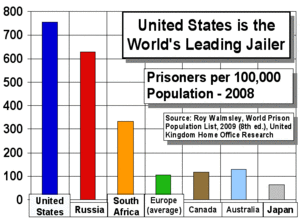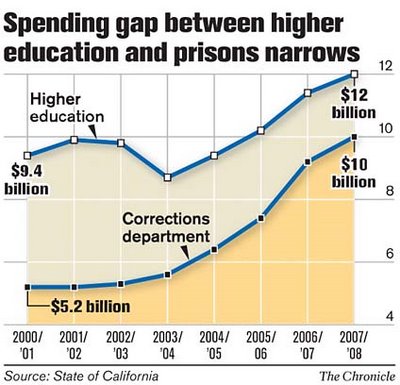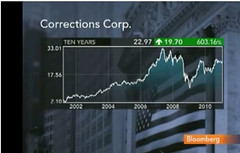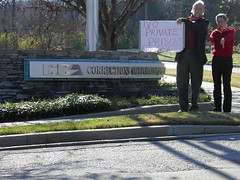Some interesting points about prisons from a Georgia blogger.
Keith McCants posted Wednesday in Peanut Politics,
Prisons as Economic Development: Boom or Bust for Rural Georgia?
In Georgia today there are more prisoners than farmers. And while
 most prisoners in Georgia are from urban communities, most prisons
are now in rural areas with high levels of poverty & a unskilled,
uneducated workforce. During the last two decades, the large-scale
use of incarceration to solve social problems has combined with the
fall-out of globalization to produce an ominous trend: prisons have
become a “growth industry” in rural Georgia, in fact Rural America.
most prisoners in Georgia are from urban communities, most prisons
are now in rural areas with high levels of poverty & a unskilled,
uneducated workforce. During the last two decades, the large-scale
use of incarceration to solve social problems has combined with the
fall-out of globalization to produce an ominous trend: prisons have
become a “growth industry” in rural Georgia, in fact Rural America.
Communities in isolated regions of the state began suffering from
declines in farming, mining, timber-work and manufacturing are now
begging for prisons to be built in their backyards. The economic
restructuring that began in the troubled decade of the 1980s has had
dramatic social and economic consequences for rural communities and
small towns. Together the farm crises, factory closings, corporate
downsizing, shift to service sector employment and the substitution
of major regional and national chains for local, main-street
businesses have triggered profound change in these areas.
So, many rural areas have bought into prisons as a growth industry.
Some consequences are pretty obvious:
Many small rural towns have become dependent
on an industry which itself is dependent on the continuation of
crime-producing conditions.
Others may take more time to see:
Continue reading → 














